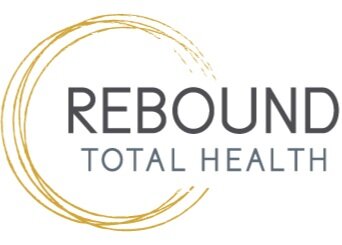Exploring our Expectations
Human beings seek pleasure from being able to predict their environment and its outcomes. That’s why we have what are called heuristics. While heuristics are not 100% rational and accurate, they are timely and sufficient thinking methods that help us immediately predict the world around us, through the lens of our own worldview. Being that our judgements and expectations are based on our own individual experiences, we’re bound to encounter moments in our life where our judgements differ from others, and that’s okay! That is the beauty of the complex mind of the human species. While having different viewpoints in life can be great, if we’re too stuck to our expectations (psychological rigidity), differing opinions, outcomes and opinions may be a challenge for our expectations.
What are expectations?
Expectations can be as simple as expecting to have a pleasant experience as you drive through Timmies for your morning coffee, or as complex as expecting your partner to respond to your emotions simply because they ‘know you best’. But let’s be honest, neither of those expectations listed above are guaranteed to occur. As I write this, I’m sipping on my burnt Timmie’s coffee - a definite let down for my coffee-loving pallet. While expectations help us to see the potential for desired opportunity, they can also set us up for let down. Truth be told, expectations create opportunity for disappointment more times than we would like to admit.
The trick is to balance our expectations and set healthy boundaries for ourselves. Defining what each of those are, how much wiggle room they have, and evaluating what one truly needs to live a sufficient, meaningful and content life is a good place to start. Boundaries operate in a manner to protect the self from interpersonal and intrapersonal harm. Whereas expectations are should statements that ought to occur because we perceive them as such. As we move through life, we must take accountability for our expectations and our boundaries. Are the expectations we have causing more pain than potential?
Like… lower your expectations?
Yes, No, Maybe. It depends. Would you like to be pleasantly surprised by good experiences or would you like to face the disappointment monster each time a good experience doesn’t happen? The question also remains, do we deserve only good experiences or are the challenging experiences meant to be there to teach us? It’s critical to determine what aspects of your life in which lowering your expectations can be helpful and which areas are imperative to maintain higher expectations. For example, I think it’s time I lower my expectations of the $2 coffee I buy every morning. By not anticipating a perfect cup of coffee each morning, I’m impressed when it’s great, but not let down when it’s not! The same principle shouldn’t apply for your relationship though. It can’t be a “bonus” if your partner treats you correctly, it should be an expectation that you treat each other well. That’s where our boundaries kick in - to uphold that expectation, we set boundaries of how we do or do not allow others to treat us.
Bringing our point back to individual experiences.
If we hold others to expectations that they do not share, things can get messy quickly. Accordingly, we would not want others to hold us to their expectations if they don’t align with our boundaries or values. As you move through life, it’s important to have an understanding of what is important to you, what your general expectations are and your personal values. Understanding ones expectations and boundaries provides us a road map of sorts, helping us make decisions and navigating interactions. Next, it’s important we move through life with an open mind, mindfully noticing both the positive and negative outcomes that may occur as a result of our expectations. As you move to better understand your expectations and pay attention to the implications they have on your life, you’ll find yourself slowly moving away from psychological rigidity and towards more psychological flexibility. Maybe soon, you too, will see that we don’t have to be let down by a crappy cup of coffee that can ruin our morning.
Looking for more help navigating realistic expectations for self and others? I’m happy to help!
Meet Melanie, Registered Psychotherapist (Qualifying) and author of this post!
Melanie Saija
RP(Q), MACP (In Progress)
Registered Psychotherapist (Qualifying)
melanie@reboundtotalhealth.ca
“I genuinely enjoy connecting with people and exploring various problem-solving options. I definitely resonate with the idea of being a ‘people person’ and think my natural ability to connect with individuals from all walks of life is one of my greatest strengths in the work I do. I love collaborating with my clients to help them overcome their goals.”

